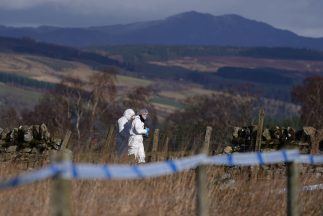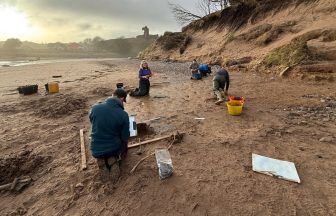A Scottish health board has claimed to be the first region in the world to effectively eliminate hepatitis C.
NHS Tayside developed a pioneering approach to treating the life-threatening blood borne virus in 2012, involving treatment of injecting drug users.
The health board said around 90% of hepatitis C infections occur through drug users sharing needles.
Standard treatments focus on people who have stopped using drugs or who are accessing help services, but the NHS Tayside project, developed in collaboration with the University of Dundee, targets people who inject drugs without waiting until they go on to recovery programmes or stop using.
This prevents them passing the virus on to others, helping limit the spread.
Since testing began, the health board has diagnosed 1970 people and treated more than 1800 – more than 90% of the estimated prevalence of the virus.
It met the World Health Organisation’s 2030 target for reducing prevalence of hepatitis C 11 years early last year and has now hit another milestone.
Lorna Birse-Stewart, chair of NHS Tayside, said: “I am delighted to announce on World Hepatitis Day that NHS Tayside has now also achieved the Scottish Government’s 2024 target of a 90% reduction in prevalence of hepatitis C, making it the first region in the world to effectively eliminate the virus.
“It is testament to the work of the teams involved and, as a board, we are very proud of them.”
Consultant hepatologist and gastroenterologist Professor John Dillon said: “Hepatitis C is a life-threatening disease which consumes a significant amount of resource in the NHS.
“Previous thinking had been that a community of people who inject drugs – their lives are too chaotic to allow for the sort of sustained treatment that hepatitis C needs to achieve a cure.
“However, our view was that with the right approach, supported with appropriate resources, we could tackle what is a very significant problem and reduce the rates of hepatitis C infection.
“If you can offer treatment at a very early stage, while people who are infected are still actively injecting, when they have contact with other people who inject and share equipment with other people, their chances of transmission disappear because they’re not infected any more. It’s the idea of treatment as prevention.”
He added: “The programme started with a single project in a Dundee needle exchange before expanding to multiple research projects and redesign of services to achieve the milestone we have now reached, which justifies the brave decision to support this approach.”
Testing and a treatment involving a combination of drugs daily for eight weeks is now offered in nurse-led community clinics, as well as in more than 60 community pharmacies, prisons and drug treatment services across Tayside.
“NHS Tayside should be congratulated and recognised for this achievement,” Scotland’s public health minister Joe FitzPatrick said.
“The Scottish Government remains committed to the elimination of hepatitis C in Scotland by 2024, and we will now work closely with NHS Tayside to understand how their achievement can be replicated in other regions across Scotland.”
Follow STV News on WhatsApp
Scan the QR code on your mobile device for all the latest news from around the country


 STV News
STV News
























